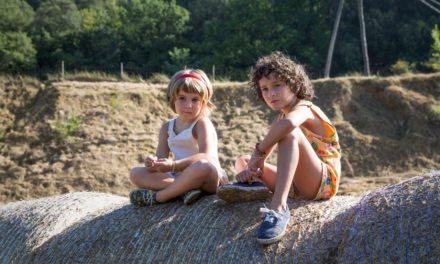Two hours before Governor Mitt Romney and President Barack Obama would debate the role of government in relation to the nation’s domestic policy, Emory students and faculty had the chance to think about the role of media and young people in national politics as a whole.
Emory theater students performed “Re-Generation 2008/2012: Portraits of (Dis)Engagement” on Monday, Oct. 1 and Tuesday, Oct. 2 at 8 p.m. and Wednesday, Oct. 3 at 6:30 p.m. in the Theater Lab of the Donna and Marvin Schwartz Center for Performing Arts. The show was directed and written in part by Ken Hornbeck (Actor’s Equity Association) with help from assistant writer Amreen Ukani (Emory class of 2008) and was originally conceived by Debra Vidali, PhD. of Emory’s Anthropology department.
“Re-Generation” has unusual beginnings.
It all started when Vidali began interviewing young people between the ages of 18 and 25 in the midst of the 2008 election cycle. Then, three years ago, she adapted her research into a play in order to make it accessible beyond academia. When it was initially written and performed, “Re-Generation” closely followed the transcripts from Vidali’s research and interviews. But in September of 2012, when rehearsals began for this year’s performance, the anthropologist updated the script to reflect the actors’ feelings about the current election.
“Re-Generation” did not tell a story per se. The play consisted of thirteen partially-related scenes interspersed with dialogue and short monologues.
There were some recurring characters, such as fervent 2008 Obama supporter Jin, played by College junior Emma Calabrese and radical communist Liz, played by Bianca Copello, who graduated in 2012.
Here the play fell short: The characters each tried to have some distinct personality, but given 10 different actors with almost equal stage time, it was difficult to get to know them all over a period of 80 minutes. Technically, the lighting, costumes and set design were all as basic as it gets, but with a documentary play these aspects are easily overlooked.
Overall, however, the play focused on conveying the problem of political apathy rather than engaging the audience in compelling characters and a riveting plot.
To this end, “Re-Generation” was quite effective. The show seamlessly integrated quotes from Vidali’s original interviews with monologues and dialogue written by the actors themselves. While some of the conversations between characters seemed contrived at times, the message was always there.
The actors juxtaposed issues relevant to young people, like women’s rights and marriage equality, with voter apathy and political disengagement.
“I just don’t care enough to know what’s going on in the world,” said College junior Natalia Via’s character, Tina, early on in the play, reflecting the sentiment of many citizens today.
In the second act, however, the audience learns why it should care: “What if you were the vote that could have changed things?” asks rapper Shockwave, performed by Kris Valeriano (class of 2006). With this observation, the ensemble comes together at the end of the show reciting, “I want to make a difference,” as the lights go down.
A short discussion debriefing the performance followed the curtain call. Audience members – those 20 or so who stayed, at least – had the chance to engage with the writers as well as the actors in continuing the discussion that “Re-Generation” initiated. Therein topics ranged from the growing influence of technology in micro-politics to the emphasis placed on the wealthy by the media.
The discussion, as well as the performance as a whole, encouraged a political discourse which is important for young people to have.
It was ultimately successful in encouraging the audience not to be apathetic about politics, but, instead, to become engaged in the political process: Go home and watch the presidential debate, make informed decisions and vote for what you believe in on Election Day.
– By William Hupp
The Emory Wheel was founded in 1919 and is currently the only independent, student-run newspaper of Emory University. The Wheel publishes weekly on Wednesdays during the academic year, except during University holidays and scheduled publication intermissions.
The Wheel is financially and editorially independent from the University. All of its content is generated by the Wheel’s more than 100 student staff members and contributing writers, and its printing costs are covered by profits from self-generated advertising sales.





